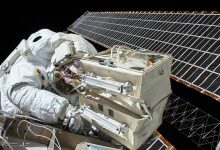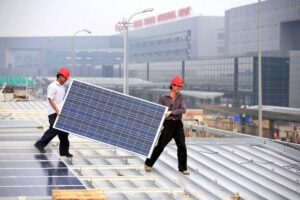The UK has committed £3 million in new funding to support the development of space-based solar power projects that would collect solar energy in space and deliver it to Earth regardless of time or weather.
The UK’s Department for Business, Energy & Industrial Strategy (BEIS) hopes the new funding will serve a triple purpose, helping to cut carbon emissions, improve the country’s energy security, and enhance its reputation as a science superpower.
Given the UK’s position as one of several European countries relying on Russia for gas, oil, and coal, Russia’s unlawful invasion of Ukraine has pushed the UK into overdrive in its efforts to increase its own energy independence and security.
Similarly, the UK is one of the world’s leading countries in terms of its commitments to reduce its emissions and environmental impact.
Investing in space-based solar power projects is just another way that the UK is hoping to cut the cord with energy imports and emissions.
“Space-based solar power could provide an affordable, clean and reliable source of energy for the whole world to benefit from, helping the move away from expensive fossil fuels,” said Kwasi Kwarteng, the UK’s business and energy secretary.
“Today’s investment is an exciting example of how we can go even further in our ambitions to make the UK a science superpower.”
An independent report commissioned by BEIS found that there is significant commercial potential in developing the underlying technologies for space-based solar power projects in their own right, particularly as regards to wireless power transmission and solar power.
However, the report nevertheless concluded that space-based solar power projects were “technically feasible, economically competitive, and well aligned with UK Government priorities.”
Further, such projects would create “new options to de-risk the pathways to Net Zero” and were recommended to be integrated into key government policies so as to take a leadership role in developing the technology.
Additional grant funding was also made available for cutting-edge weather monitoring sensors which would provide more accurate weather forecasts. The new sensors will be put into orbit for the first time thanks to a partnership with data and analytics company Spire Global.
“Satellite technology is helping us solve some of the most significant challenges we face,” said Dr Paul Batey, chief executive of the UK Space Agency.
“We’re working with the space sector to drive innovation, catalyse investment and bring tangible benefits to people and businesses across the UK.
“As these 2 new projects show, space is not only vital in helping us monitor the weather and our environment, it can also provide new solutions to our future energy needs and support the global fight against climate change.”










